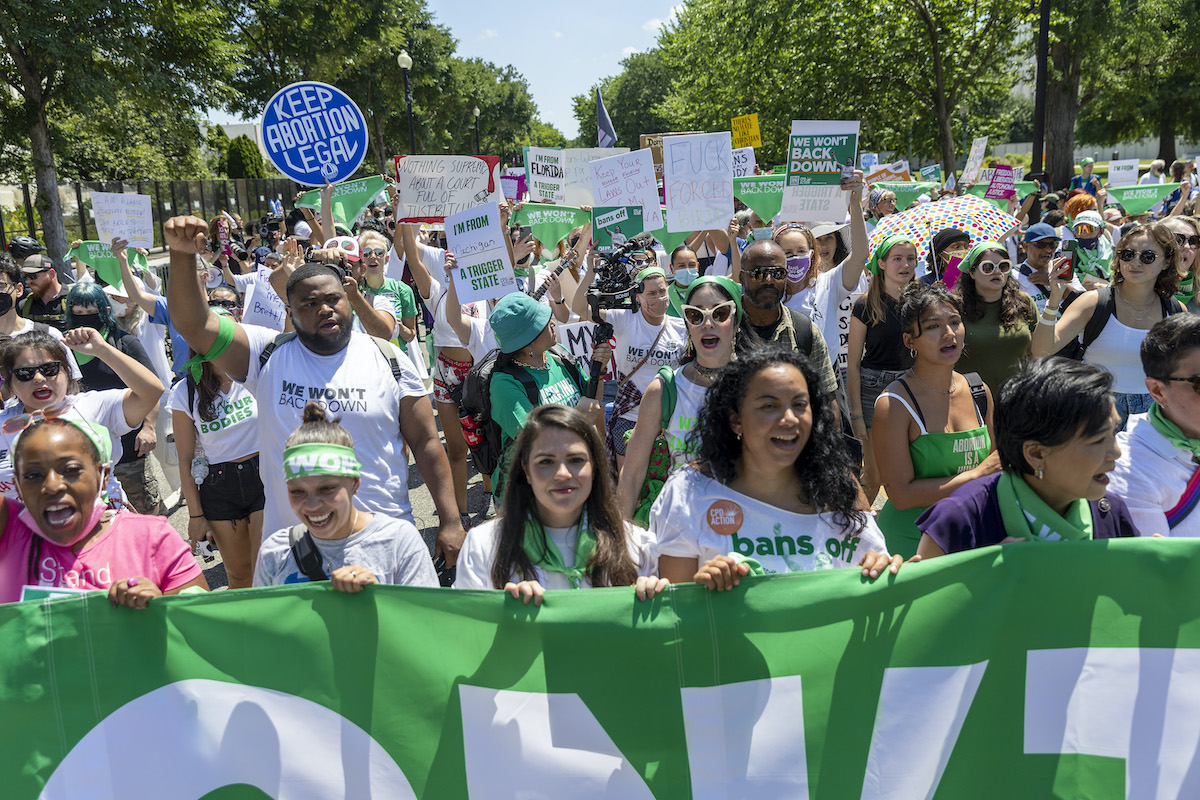According to guidance released by the Department of Health and Human Services Monday, federal law guarantees pregnant people the right to an abortion if their life or their health is in danger. This supersedes all state laws banning abortion—many of which do not include exceptions for the life and well-being of the pregnant person.
This is not a new law, but rather the HHS is pointing to the Emergency Medical Treatment and Active Labor Act (EMTALA), which was established in 1986 and guarantees a person’s right to emergency medical care. What the HHS has done here is to clarify that that includes emergency abortion care.
“Under the law, no matter where you live, women have the right to emergency care — including abortion care,” HHS Secretary Xavier Becerra said in a press release. “Today, in no uncertain terms, we are reinforcing that we expect providers to continue offering these services, and that federal law preempts state abortion bans when needed for emergency care. Protecting both patients and providers is a top priority, particularly in this moment. Health care must be between a patient and their doctor, not a politician. We will continue to leverage all available resources at HHS to make sure women can access the life-saving care they need.”
This move comes in response to Biden’s executive order on abortion care, which gave the HHS 30 days to come up with a plan “identifying potential actions” to protect abortion access. Executive orders can be extremely frustrating in their lack of concrete action, and oftentimes these departments’ deadlines come and go with no information made public about whether or not any plan was actually made. So it’s a testament to Becerra—formerly California’s Attorney General, who consistently used that position to take aggressive action to protect people’s access to healthcare—that this announcement came after only three days.
Becerra hasn’t minced words about his opinion of the decision to overturn Roe v Wade. Following that decision, he made it clear this was a priority. From another press release:
Friday’s Supreme Court decision was despicable, but it was also predictable. HHS has been preparing for this for some time. That’s why, earlier this year, we launched our HHS Reproductive Access Task Force to plan for every action necessary to protect women’s access to reproductive health care.
There is no magic bullet. But if there is something we can do, we will find it and we will do it at HHS. Indeed, that was the instruction I received from the President of the United States.
This emergency care directive will no doubt be challenged in court on religious freedom grounds, as medical providers are not just allowed but required to provide abortions if the patient needs one. But for now—especially since the Supreme Court is on recess until October—this is just great news. It not only offers protection to patients needing emergency care, but also to providers, letting them know that the federal government has their back in case of legal issues. Especially helpful is the language clarifying that the right/requirement to provide abortion care extends beyond saving the pregnant person’s life to also protecting their health—a clarification that offers providers a huge degree of legal coverage.
(image: Tasos Katopodis/Getty Images)










Published: Jul 12, 2022 12:38 pm